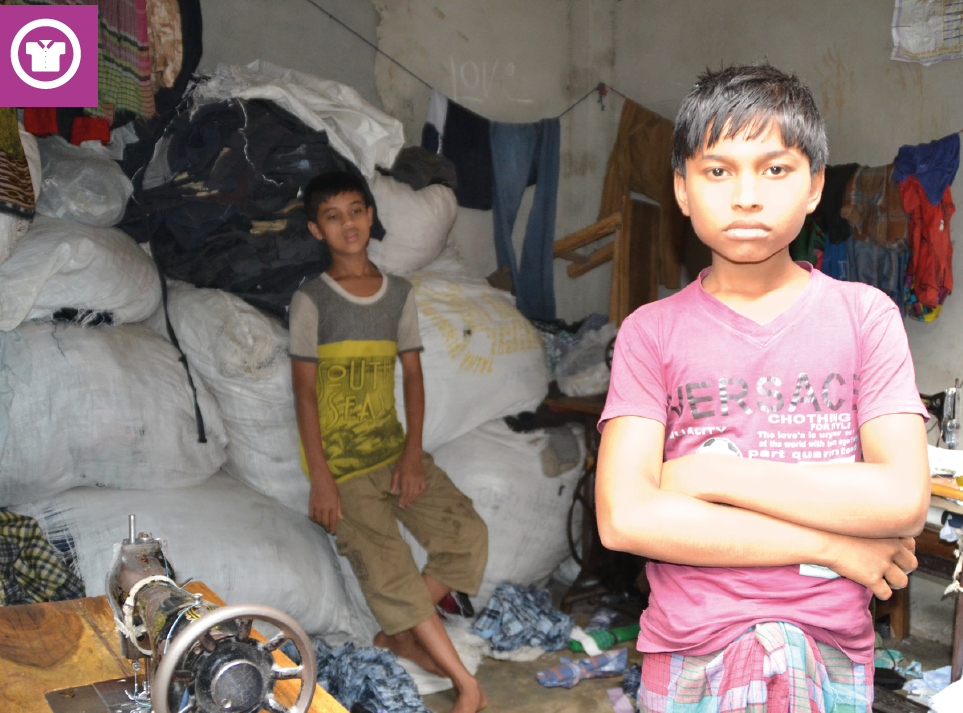
Garment brands contribute to low wages, long working hours, child labour and school dropouts in Bangladesh
Stop Child Labour and SOMO have published the report ‘Branded Childhood’. Read here the press release from Stop Child Labour:
The average worker in the Bangladeshi garment industry is getting paid only one third of what is considered to be a living wage. Low wages and long working hours have been found to play a key role in parents’ decisions to take their children out of school and let them work in various jobs. Many international garment brands, including (but not limited to) H&M, C&A, Esprit, Marks & Spencer, GAP, VF Corporation and Kmart Australia, contribute to this situation.
These are important findings of the report Branded Childhood that has been published by Stop Child Labour and SOMO today. Almost 50% of the textiles produced in Bangladesh are exported to the European Union. International brands and retailers should therefore play a key role in ensuring that the rights of all workers and their children are respected.
Indirect child labour
There are still more than 3.5 million children working in Bangladesh, aged 5 to 17 years old. The highest concentration of child workers is found in Dhaka Division, where an estimated 690,000 children are engaged in child labour.
Child labour at export-oriented garment factories in Bangladesh has been substantially reduced over the past few years, in part due to the buying companies’ zero tolerance policies. However, this report focuses on a more hidden aspect of child labour. The research report interviewed 75 workers with children; these workers were working in 14 different factory units producing garments for the international market.
The working children featured in the report are not part of the buying companies’ supply chains but are the children of the garment workers. They are working at home or in other companies, sometimes in entirely different sectors. Workers receive low wages and experience long working days and this – without doubt – contributes to the low school attendance and child labour of their children.
“The responsibility of companies to address child labour also extends to ‘indirect child labour’, to which low wages and excessive working hours are important contributing factors. Therefore, companies should assess the impact of their purchasing practices and the consequences for the workers and their children”, says Gerard Oonk, senior advocacy officer of Stop Child Labour.
“The various disturbing stories in the report make it clear that urgent action is needed and companies should quickly work towards the payment of a living wage that enables adult workers to meet their basic needs.”
Larger group of brands should act
Many international garment brands and retailers have their products made in Bangladesh, although the report only mentions seven European and US brands and retailers. These companies were identified as buyers from the investigated factories through the companies’ public supplier lists, as well as by analysing shipment data.
There is a much larger group of brands and retailers who are sourcing from the investigated factories. The responsibility to address the labour rights issues therefore does not only lie with the brands and retailers mentioned in this report.
Stop Child Labour and SOMO urge all companies sourcing from Bangladesh to take adequate measures to provide a living wage and good working conditions to workers in their supply chain, enabling their children to attend school and enjoy their childhood.
Partners
Related news
-

-
Chain of consequences Published on:
 Joshua RosenzweigPosted in category:Publication
Joshua RosenzweigPosted in category:Publication Joshua Rosenzweig
Joshua Rosenzweig
-



